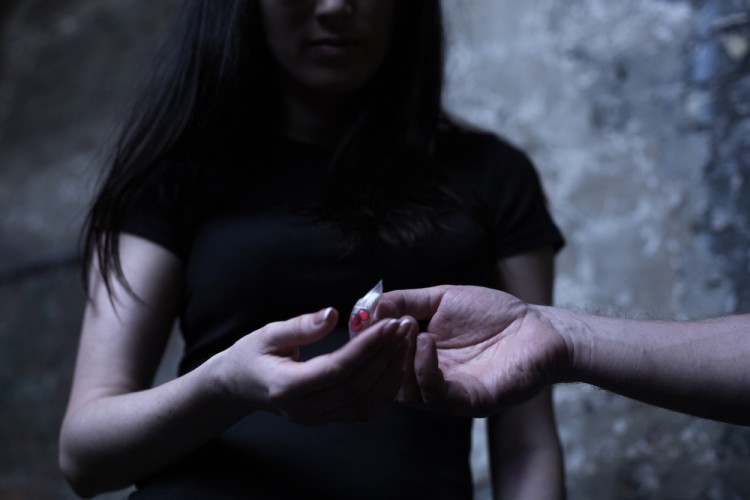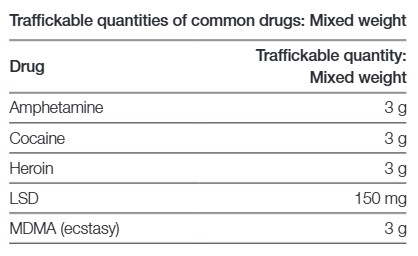
If you’ve been accused of a drug offence, you might be worried about your licence, reputation, or liberty. You need someone you can trust in your corner.
According to the Sentencing Advisory Council, the Magistrates Court sentenced 5,147 people for the principal offence of possession of a drug of dependence, the most common drug being cannabis (54.5%).
Wondering about your legal rights? This article will explore the role of a drug offence lawyer and how they can help your case.
What is a drug of dependence? The term “drug” in Victoria means a “drug of dependence”. For a detailed definition, read Section 4(1) and Schedule 11 of the DPCS Act.
Amendments to this in 2017 added synthetic cannabis and other synthetic substances to the list of drugs of dependence, including “analogues” of drugs, which are structurally modified.
What are some of the laws concerning drugs in Victoria?
These pieces of legislation create state, federal and extra-territorial drug offence laws.
Section 70(1) notes the definition of “use” as smoking, inhaling the fumes of, or introducing a drug of dependence into a person’s body.
Victoria’s drug laws classify offences under various categories, with penalties depending on the nature of the crime. Some offences include:
Possession is an indictable offence under Section 73 of the DPCS Act, and the prosecution can prove possession by relying on the deeming provision in the DPCS Act.
Possessing an illegal drug without lawful justification or prescription is a crime. The severity depends on the quantity and type of substance involved (such as marijuana versus MDMA).
Trafficking at common law means movement from source to the ultimate user in the course of trade and requires at least an activity performed in a commercial setting and contact between the alleged trafficker and one other person.
Trafficking can also mean selling, agreeing to sell, packaging for sale, manufacturing and possessing with intent to sell.
Cultivation of a non-commercial quantity of a narcotic plant is an indictable offence triable summarily (Section 72B DPCS Act). To cultivate includes sowing, planting, growing, tending, grafting, dividing, transplanting, nurturing, or harvesting a narcotic plant.
Growing cannabis plants or operating a lab to manufacture illicit substances are severe offences. This includes being in possession of cannabis seeds or tending to the plant.
Use and possession are less serious than cultivation and traffic offences.

Penalties for drug offences in Victoria range widely based on the offence’s severity and other circumstances. These include:
Victorian courts consider the Sentencing Act 1991 when determining penalties. The offence of using a drug of dependence is called a summary offence (s 75 DPCS Act). The use of cannabis or tetrahydrocannabinol (THC) carries a maximum penalty of up to 5 penalty units (Section 75(a). There is no jail penalty, even for subsequent offences.
As for the use of other drugs, such as cocaine, this carries a penalty of a fine of up to 30 penalty units, imprisonment for one year, or both.
For a detailed guide, read what types of drug charges are most common.

If you’ve been arrested or asked to attend a court hearing, how can a drug offence lawyer help you?
A drug offence lawyer understands your case and creates a strong defence strategy.
May Lawyers aim to give you a favourable outcome before trial through negotiations, such as:
Everyone has a right to legal representation, and a lawyer ensures all interactions with authorities are conducted fairly and within legal boundaries.
Sentencing Advocacy
An experienced lawyer can mitigate the severity of the offence.
Examples include:
Lawyers can argue for:
Finding the Right Drug Offence Lawyer in Victoria
How do you know if a drug offence lawyer is right for you?
Choose a lawyer with experience in drug-related matters and an in-depth understanding of Victorian laws and court systems. Will May at May Lawyers is an accredited criminal lawyer and one of the few recognised by the Law Institute of Victoria who can help you.
Are you being dealt drug charges, such as possession or trafficking? Review case outcomes and client testimonials to look at the lawyer’s success in handling similar cases.
Your lawyer should provide clear guidance, respond quickly, and build a relationship of trust. May Lawyers treat every case as if it were their own.
Still unsure? Here is some practical advice for choosing the right criminal defence lawyer.

Yes, under certain circumstances:
Costs vary based on the lawyer’s expertise and case complexity. May Lawyers offer a no-obligation chat to discuss your case.
Whether you need a criminal lawyer in Windsor, Richmond, Sunshine, Fairfield, Preston, or anywhere in Melbourne, May Lawyers is available 24/7 for legal advice.
Drug offences in Victoria can result in legal and personal repercussions. However, an experienced drug offence lawyer can navigate the complexities of the law, protect your rights, reduce penalties and secure the outcome you’re hoping for.
Whether it’s negotiating with prosecutors, advocating for alternative sentencing, or challenging evidence, the right lawyer can make a positive impact on the case. If you are facing drug-related charges, May Lawyers can protect your future with compassion and professionalism.
Will May is one of the few recognised by the Law Institute of Victoria as an Accredited Specialist in criminal law and brings a decade of experience to your case.
Contact us today by emailing will@maylawyers.com.au or call 0415 582 404 for a free case evaluation and no-obligation legal advice.